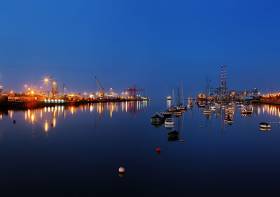Displaying items by tag: EPSO Conference 2016
Call to Conference – ESPO 2016 Dublin
#EPSO2016 – The European Sea Ports Organisation (ESPO) is to hold its annual conference in Dublin for the first time.
EPSO is inviting its members, policy makers and stakeholders to join the 13th edition of its annual conference
The conference (2-3 June) is being organised in co-operation with the Port of Dublin, Ireland’s premier port. Participants can register online.
The 2016 ESPO Conference will look into ways to improve the efficiency of maritime transport and ports, this from different angles: How to remove the remaining barriers in maritime transport and how to come to a real internal market for maritime transport? How to set the digital agenda for ports? Big data: what is in for European ports? How can ports benefit from new trade agreements? Are there potential game stoppers?
For decades now, the port and shipping industry have been calling for a “true” internal market for maritime transport, but which steps are needed? What is already there? Who or what are the real barriers? Since maritime policy is at the top of the 2017 Commission agenda, the ESPO conference aims at preparing the ground for this important year for the maritime and port sector and feeding further discussions.
If lifting the barriers of the internal market for maritime transport is essential to enhance the role of maritime transport and convert European ports into seamless gateways and nodes in the supply chain, it is not enough in itself.
Growing trade volumes and climate change policies will oblige ports and the whole logistic chain to make better use of the existing capacity in transport. The first way to address this challenge is digitalisation. Is there a digital agenda for ports? Is there a role for policy? The second way to optimise transport and port operations is to explore the world of “big data”. Information is power.
But how to use large quantities of data for the port’s benefit? Are we ready to open up the flow of data? How to protect against risks of cybercrime?
Moreover, the conference will investigate how TTIP, the trade agreement under negotiation with the US, could possibly benefit ports, on both sides of the Atlantic. At the eve of the British referendum an insight will also be provided on the possible impact of a “Brexit” for UK and European ports. Finally, the conference will zoom in on China’s “one belt, one road” concept and assess how this could affect the EU port industry.
As always the conference will close with a policy debate where EU High level policy makers will present their views on the issues discussed during the Conference and enter into a final debate with port authorities.
The conference is taking place on the premises of the Dublin Castle and always, the ESPO conference will combine high level debates with networking moments and dinners.





























































